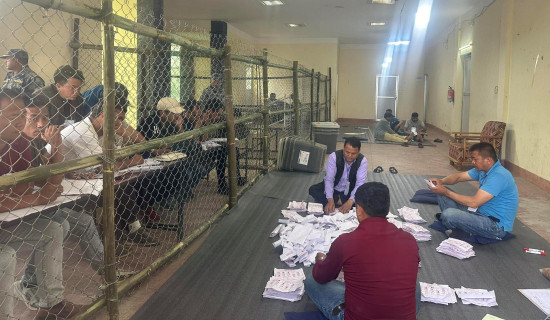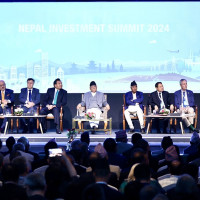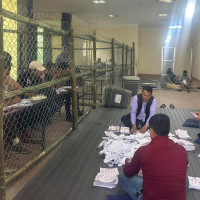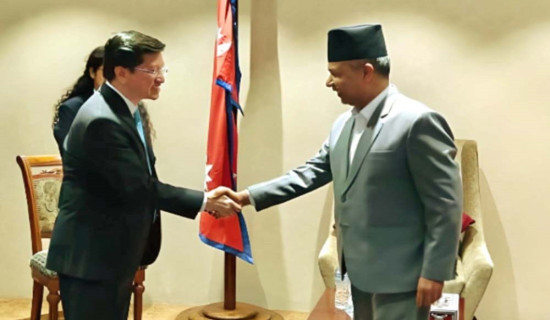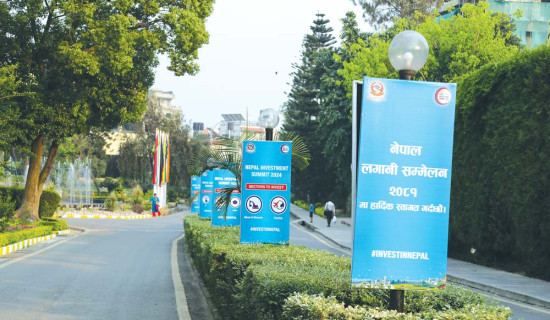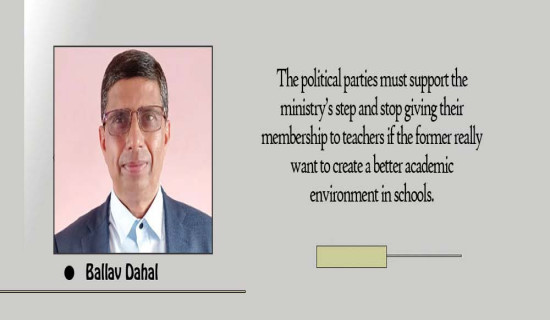- Tuesday, 30 April 2024
A Review Of Year 2080 BS
Economy On Recovery Path, Volatility In Politics
The year 2080 Bikram Sambat began with a series of bold moves of the government in the direction of promoting good governance, bolstering law and order, and ending impunity that has plagued various fields of the society. Some high profile politicians and bureaucrats were arrested and sent to judicial custody over their involvement in the fake Bhutanese refugee case on May 10, 2023. Former deputy prime minister (DPM) and minister for home affairs Balkrishna Khand, and another former DPM and CPN-UML secretary Top Bahadur Rayamajhi were among the top figures facing charges in this connection.
Their prosecution has raised a hope that those involved in crimes and corruption would eventually be brought to book no matter how powerful they are. But the pace with which the investigation into the cases proceeds should not slow down and there should be no place for pressures of any kind to derail on the path of good governance and the rule of law which the government has vowed to go ahead with.
The probe into some big frauds and forgeries gathered momentum, and there are high hopes they would reach credible conclusion without any political interference. A bold move on the part of the government can earn public trust and ensure rule of law and justice.
In the case of Lalita Niwas land grab scam, the police nabbed some persons involved in it and released them later on the lack of proper evidences. In the case related to usurping of 10 ropanis of land belonging to Bansbari Leather and Shoe Factory (BLSF) businessman Arun Chaudhary and Ajit N. S. Thapa were detained and later released on the ground of evidential shortages. CPN-Maoist Centre vice-chair Krishna Bahadur Mahara was detained on his alleged role in the smuggling of gold through e-cigarette (vape) on December 25, 2022. He was later released on health grounds.
Shift of ruling alliance
The country witnessed political volatility in the last 15 months, with shifting alliances and frequent Cabinet reshuffles several times. Maoist Centre chair and Prime Minister Pushpa Kamal Dahal Prachanda has changed the coalition partners three times since he formed the joint government with the backing of CPN-UML on December 26, 2022 for the first time. As the alliance with the UML fell apart, he picked Nepali Congress as the main ally but the collaboration between NC and the Maoist Centre broke up after more than a year. The UML has now become the key partner of current coalition.
The changes of alliance partners has had its
 repercussions on the political instability beyond the federal government. The provincial governments have witnessed similar changes and instability.
repercussions on the political instability beyond the federal government. The provincial governments have witnessed similar changes and instability.
Economic recovery
As the country has seen a semblance of political stability, economy is on a moderate course to come out of lingering recession caused by the internal and external shocks. The ongoing wars between Russia and Ukraine, and Israel and Hamas have further amplified economic challenges, hindering the country’s efforts to recover from COVID-19 pandemic-induced crisis.
Nepal that imports almost everything from salt to gold is feeling the heat of soaring price of imported goods. As a result, inflation now reached around 9 per cent. Now it is gradually declining, albeit slow.
Although some signs of improvement have been seen in the world’s economy, the International Monetary Fund (IMF) estimates that the global economic growth rate will remain stable until next year. It is projected to grow by 3.1 per cent in 2024 as well. In 2024, the growth rate of developed economies is expected to be 1.5 per cent and emerging and developing economies 4.1 per cent.
In the meantime, the World Bank has estimated that Nepal’s economy to grow by 3.3 per cent in FY 2024, driven by revived tourism and a pickup in hydropower exports. The price of gold and silver has set a new record in the country. A tola of gold was traded at Rs. 136,800 per tola and silver at Rs. 1,700 on April 10, this year. The value of the US dollar with Nepali rupees has set another historic high this year. On April 5, 2024, NRB fixed a selling exchange rate of one US dollar at Rs. 133.81.
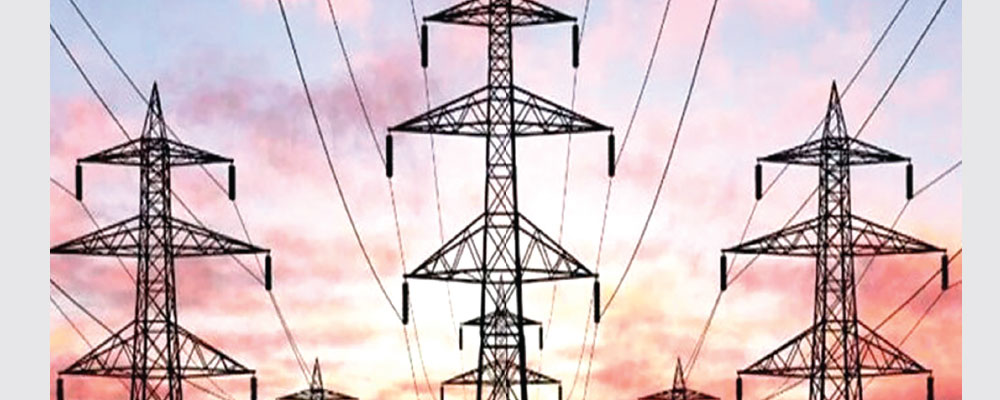
Although, there is some improvement in the external sector economy, the internal economy remains under pressure. There is a state of panic among the businessmen, while the people are bearing the brunt of the price hikes. As there is low revenue collection, the government is compelled to get domestic and foreign loans even to pay the interest and principal of foreign and domestic loans and manage recurrent expenditures.
The nation’s total outstanding debt has reached Rs. 2,388.26 billion as of mid-March 2024. Out of total debt, external debt comprises Rs. 1,202.73 billion and domestic debt Rs. 1,185.52 billion. Share of external public debt to the total outstanding debts is 50.36 per cent while the share of domestic debts is 49.63 per cent. Unemployment is on the rise in the absence of industries. Around 2,000 Nepalis go abroad every day in search of better job.
With the adoption of flexible monetary policy by the Nepal Rastra Bank (NRB) in the current fiscal year, the interest rate has started to drop gradually over the months. The interest rate on loans charged by the Bank and Financial Institutions (BFIs) declined by around 10-12 per cent from 14-16 per cent within a year. Even decreasing the interest rate on loan, credit expansion from BFIs could not increase significantly. Due to low credit expansion, there is high liquidity in the banking sector.
In the last one year, there has been significant improvement in the power generation, transmission and distribution system of electricity. As a result, the country earned about Rs. 12 billion by selling electricity during this rainy season. On January 4, 2024, Nepal signed a historical long-term power trade agreement with India to export 10,000 MW of electricity to it in the next 10 years. Similarly, Nepal and Bangladesh are close to a deal on electricity trade.
According to the central bank, the foreign current reserves reached an all-time high of Rs. 1,872.82 billion during the first eight months of the current fiscal year. The foreign exchange reserves of the banking sector are sufficient to cover the prospective merchandise imports of 14.8 months, and merchandise and services imports of 12.4 months. Nepal has received remittance worth Rs. 961.22 billion in the first eight months of the current fiscal year 2023/24. The current account and balance of payment is sound. The consumer price inflation (CPI) moderated to 4.82 per cent in mid-March 2024 compared to 7.44 per cent a year ago. The tourism industry is showing encouraging sign of recovery as foreign arrivals witnessed a remarkable surge over the months. About one million tourists arrived in last nine months from mid-June, 2023.
Above 111,000 foreign tourists arrived in Nepal only in the month of March. In the meantime, the government is gearing for organising the 3rd Investment Summit on April 28-29, this year.
Trust crisis in market
The trust of public in the financial market has decreased lately due to the problems seen in cooperatives and microfinances. Large numbers of microfinance, cooperatives and loan shark victims came in protest demanding justice. Owners of dozens of cooperatives have fled after embezzling billions of rupees of depositors.
Recently, the government has also formed a Crisis-ridden Cooperatives Management Committee, headed by former chair of Administrative Court Kashi Raj Dahal, to solve problems of around 500 cooperatives.
Not only that, but with the reduction in real estate transactions, the value of property has also decreased. As a result, people have not been able to sell their property to meet their daily expenses. The capital market also remained almost stable this year as NEPSE has only been between 1,900 points and 2,100 points.
(Khatri and Kafle are journalists at The Rising Nepal.)



